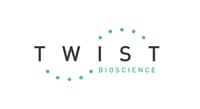
Rapid and Sensitive Detection of SARS-CoV-2
A new capture panel rapidly detects SARS-CoV-2 and surveys the full-length viral genome for new mutations


Promptly detecting COVID-19 is paramount to administering timely treatment and preventing the spread of the disease. Researchers often use reverse transcription-polymerase chain reaction (RT-PCR) to rapidly detect COVID-19 cases by using primers to amplify specific regions of the SARS-CoV-2 virus. However, this approach lacks the sensitivity to detect low viral loads and does not produce amplicons long enough to identify mutations for tracking viral spread and evolution over time.
Researchers have successfully used nucleic acid hybridization capture-based assays for rapidly detecting and tracking other pathogens such as Ebola virus. Leveraging this technology, researchers developed a large panel of capture probes covering the full-length SARS-CoV-2 genome for rapid and sensitive COVID-19 detection.
Download this case study from Twist Bioscience to learn about
- A newly developed capture panel for rapid, sensitive SARS-CoV-2 detection
- How researchers developed a capture panel with 99.9% SARS-CoV-2 genome coverage
- The sensitivity required to detect as few as 10 copies of viral nucleic acid
- How to detect mutations in the SARS-CoV-2 genome to track viral spread and evolution over time